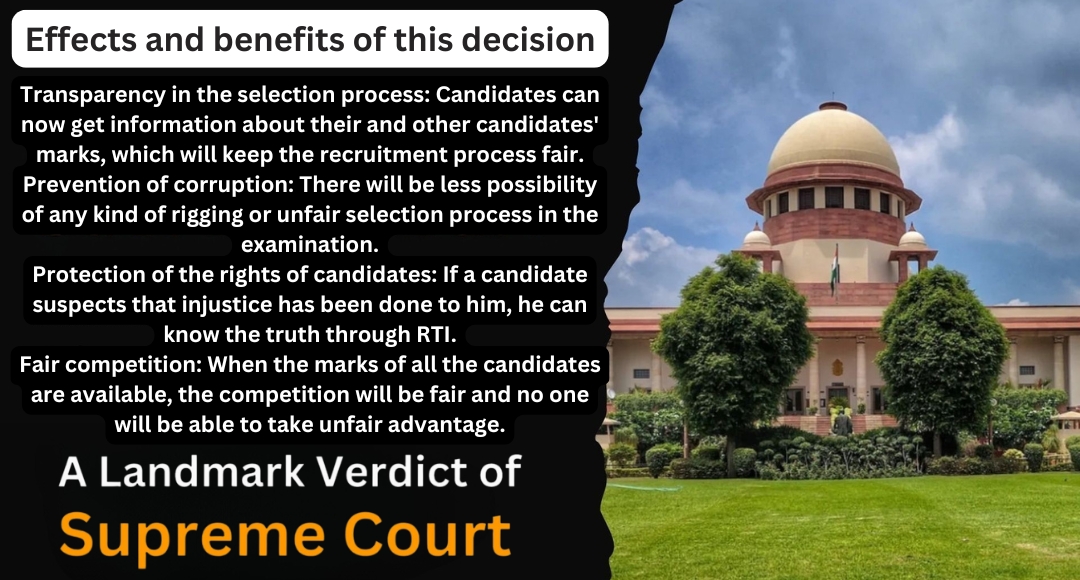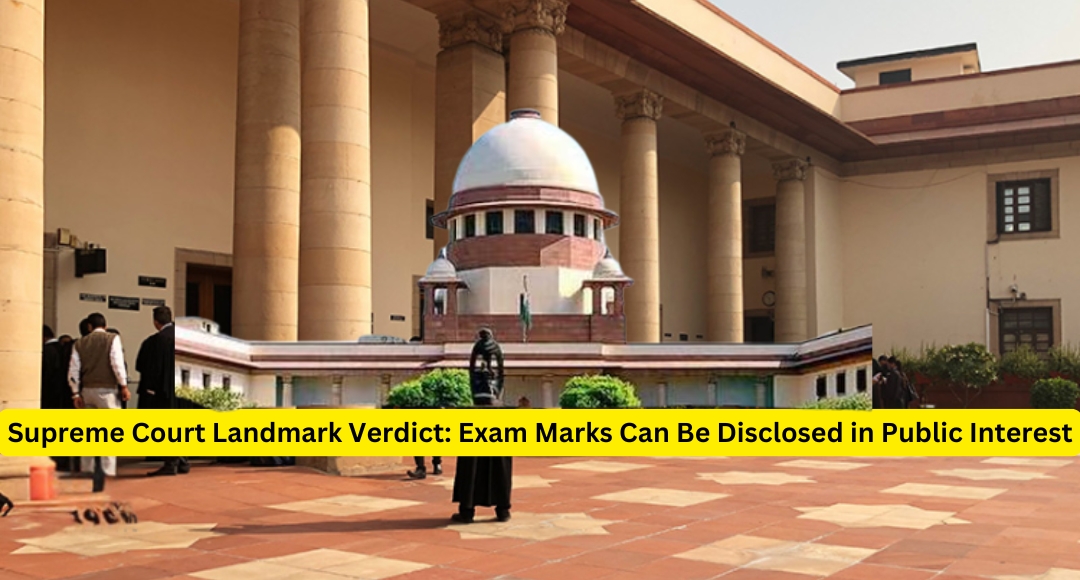Hello friends, Have you ever taken part in any government exam and wondered how transparent the selection process is? Then now you are going to get relief from an important decision of the Supreme Court. Recently, the Supreme Court in an important order made it clear that the marks obtained by other candidates in public examinations can be shared in the public interest under the Right to Information (RTI) Act, 2005. That is, now if a candidate wants to get information about his or others’ marks, it cannot be stopped on the grounds of confidentiality.
Landmark decision of Supreme Court
Have you ever taken part in any government examination and wondered how transparent the selection process is? Have you ever felt that some information is being hidden? So now you are going to get relief from an important decision of the Supreme Court. Recently, the Supreme Court made it clear in an important order that the marks obtained by other candidates in public examinations can be shared in the public interest under the Right to Information (RTI) Act, 2005. That is, now if a candidate wants to get information about his or others’ marks, it cannot be stopped on the basis of confidentiality.

Supreme Court supports the decision of the Bombay High Court
The matter came to light when a candidate, who was called for an interview for the post of Junior Clerk in Pune District Court but was not selected, sought information about the selection process and marks of other candidates through RTI. But the information officer refused to give the information by calling it “confidential”. On this, the Bombay High Court ruled that the marks of candidates in public examinations cannot be considered personal information, as it is related to public activity and transparency. The court said that under Section 8(1)(j) of the Right to Information Act, only personal information is confidential, which has no relation to the public interest.
Supreme Court’s decision and judges’ comments
Now the Supreme Court bench of Justice Sudhanshu Dhulia and Justice Ahsanuddin Amanullah upheld this decision and said: “We also feel that even though the information of marks is personal, it is necessary in public interest at the present time. Therefore, the information officer cannot keep it confidential. Rather, such information should be made public to maintain transparency.”
Effects and benefits of this decision
After this historic decision of the Supreme Court, more transparency can be expected in government recruitment examinations. This decision will benefit the candidates in many ways:
- Transparency in the selection process: Candidates can now get information about their and other candidates’ marks, which will keep the recruitment process fair.
- Prevention of corruption: There will be less possibility of any kind of rigging or unfair selection process in the examination.
- Protection of the rights of candidates: If a candidate suspects that injustice has been done to him, he can know the truth through RTI.
- Fair competition: When the marks of all the candidates are available, the competition will be fair and no one will be able to take unfair advantage.
Will there be any limitations for the candidates?
- Although the Supreme Court has implemented this decision to increase transparency, there are some important points in it:
- Only information about marks of public examinations can be sought, not of private institutions or personal details.
- The information should not be used to harass any candidate or take unfair advantage.
The examination-conducting bodies will have to share the information by following proper procedures so that no one’s privacy is misused. This decision of the Supreme Court is a relief for lakhs of students and candidates who appear in the recruitment examinations for government jobs. Now the selection process will not be able to be hidden under the guise of confidentiality and candidates will be able to become more aware of their rights.
Disclaimer: This article is written for information and awareness purposes only. The facts given in it are based on the decisions of the Supreme Court and Bombay High Court. Readers are advised to get proper information from the relevant Acts and authorities before taking any legal action.
Also read:
Understanding the Law of Torts Bare Act: A Complete Guide
Supreme Court Slams Haryana Police for Chaining Accused to Hospital Bed






